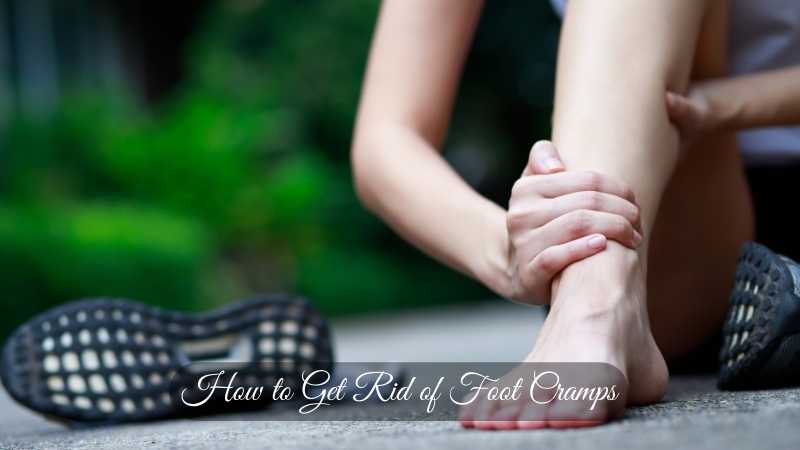
Voluntary or involuntary contraction of muscles can cause foot cramps. While the arches of the foot are generally affected by voluntary contractions known as skeletal muscle cramps, the calves, and soles of the feet are found to be affected by involuntary contractions known as nocturnal leg cramps. This article tries to understand how to get rid of foot cramps.
Skeletal muscle cramps are caused by the loss of essential salts from the body or by exhaustion. The reason for nocturnal leg cramps is used to be understood. Awareness of the cause of any condition eventually leads to its treatment. Moreover, the severity of the condition decides the mode of the treatment.
How to Get Rid of Foot Cramps
Mild to Moderate Conditions
- Applying a heat pad or a warm towel on the cramp improves blood circulation in the region. This provides relief from the painful condition.
- The contracted muscles can be relaxed by putting cold packs on the cramp. Ice cubes can be wrapped in a piece of cloth and applied to the cramp for 10-15 minutes with breaks in between.
- As a part of a regular exercise regime, stretching the foot, ankles, and calves can be beneficial.
- Massage the cramped location with herbal oil can provide relaxation in natural ways.
- The food consumed should supply nutrients like potassium, calcium, and magnesium aplenty to keep the condition of foot cramps at bay.
- The recommended six to eight glasses of water or more is a must to maintain proper levels of electrolytes in the body.
Chronic and Severe Conditions
- Those suffering from chronic foot cramps must follow a pre-bed routine. They should drink a cup of chamomile tea or lukewarm milk before going to bed.
- The feet should be stretched as much as possible while lying on the bed for a few minutes. The posture can be repeated three times.
- Medications like naftidrofuryl drug, calcium channel blockers, and Vitamin B complex are available to treat severe cases of this condition.
- Quinine drug should only be administered to the patient for the abovementioned treatments. Discretion should be observed while giving this drug owing to its side effects.
Conclusion: The answer to how to get rid of foot cramps is to strike a perfect balance between diet, activities, and rest before the condition turns severe or chronic.
As submitted by Paul Roy –
Foot cramps are painful conditions caused by the contraction of muscles. If the contractions are voluntary, as often seen in arches of the foot, they are called skeletal muscle cramps. If they are involuntarily, especially at night times, observed in the calves and soles of the feet, the condition is called nocturnal leg cramps.
Treatment of any condition is intimately related to its cause. While loss of essential electrolytes from the body through sweat and fatigue are the reasons for the former type of cramp, the exact cause for nocturnal leg cramps is not understood yet.
Getting Rid of Foot Cramps
- A warm towel or a heat pad can be applied to the painful cramp. The energy can dilate the blood vessels of the inflamed area and help improve blood circulation, providing relief.
- Tense muscles can relax by applying cold packs like ice or cold drink cans from the refrigerator.
- Stretching exercises and massage can relieve the mild contraction of the muscles.
- If the diet contains sufficient amounts of nutrients like potassium, magnesium, and calcium, the condition of foot cramps can be kept at bay.
- Proper intake of fluids can restore the levels of electrolytes lost due to fatigue and treat this condition.
- Drugs like naftidrofuryl, Vitamin B complex, and calcium channel blockers can be prescribed as medications to treat this condition.
- If the treatments mentioned above fail, Quinine drug can be given to the patient. However, its usage should be on discretion, owing to its side effects.

3 Comments
I would add that you should eat plenty of foods rich in calcium, potassium, magnesium and vitamins.
Maggie
Is it the same as the one we had when we are sleeping? I have cramps always when I am sleeping.
Foot cramps are mainly caused due to dehydration. So drink a lot a lot of water, it helps!